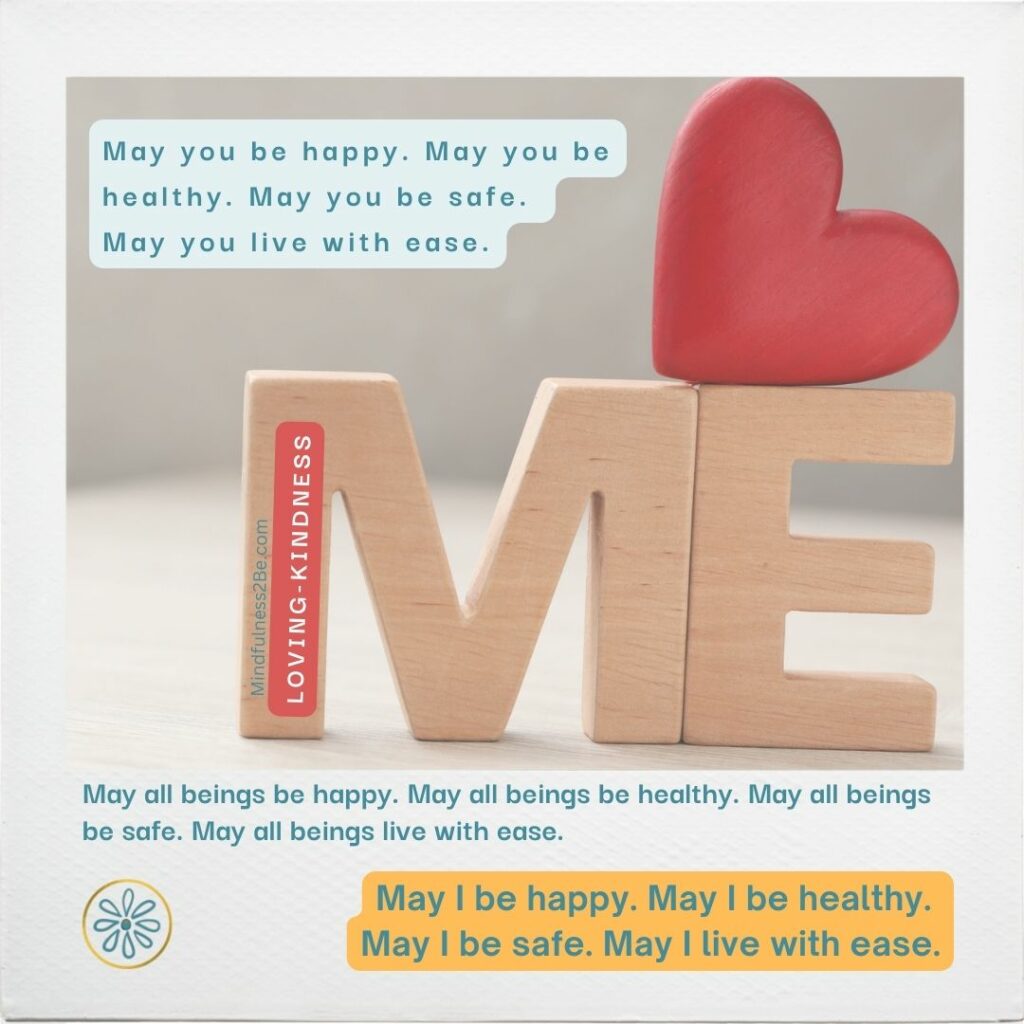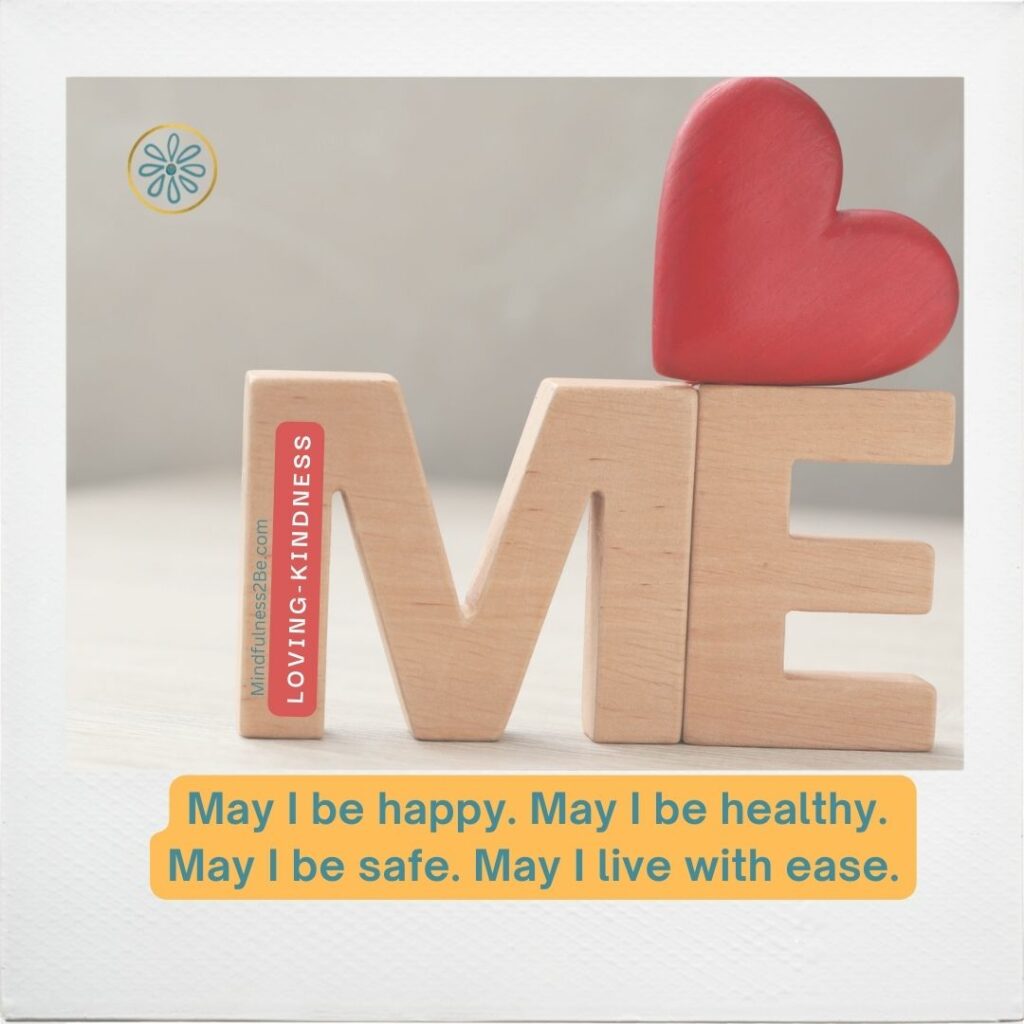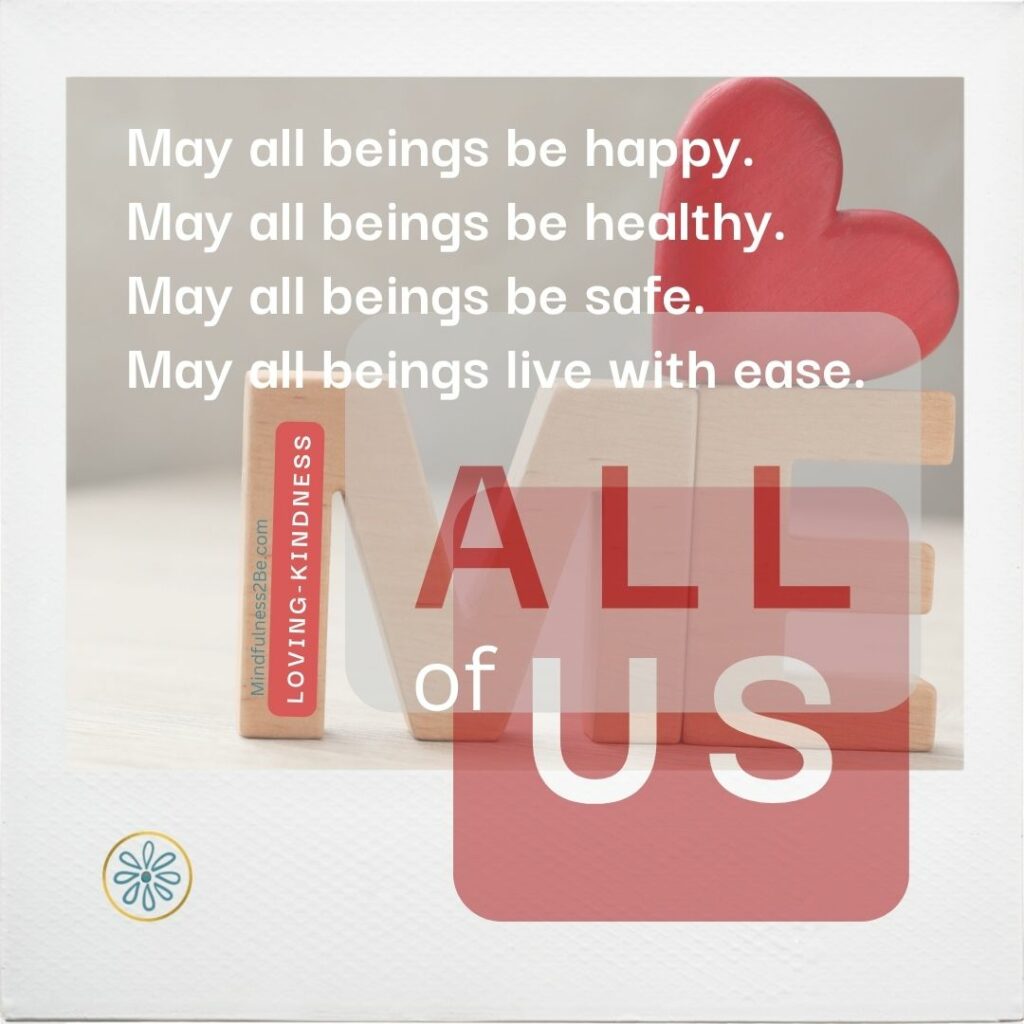The art of loving-kindness meditation involves being present with oneself and others in a compassionate and loving way. Just as with any art, it takes time and practice to master the technique. It is a form of metta meditation that helps train the mind to be more loving and kind. LKZ involves wishing happiness for all beings and recognizing that suffering can be relieved through compassion and loving-kindness. When we practice these techniques, we can shift from reactivity to responsiveness and find healing.

Remember that the practice of loving-kindness is not about achieving a certain result or outcome, but rather about cultivating a sense of care, connection, comfort, and nourishment within yourself and towards others. With regular practice, you may find that your ability to offer loving-kindness and compassion to yourself and others increases, and that you are better able to navigate challenging situations with a sense of calm and clarity.
One thing to keep in mind as you practice loving-kindness meditation is that it is not necessary to force yourself to feel a certain way. It is common for people to feel resistant to offering love and compassion to themselves or others, especially when they are experiencing difficult emotions or situations. It is important to remember that the practice of loving-kindness is not about trying to suppress or ignore negative emotions, but rather about finding a way to hold them with care and understanding.
Challenges
As mentioned before, you may find it challenging to offer loving-kindness to yourself or others, try starting with small acts of kindness and compassion, and gradually build up from there. It can also be helpful to seek the guidance of a qualified meditation instructor or therapist who can offer support and guidance as you develop your practice.
Also, if you feel overwhelmed, it is important to prioritise safety and take time to anchor and ground yourself. It is also important to remember that taking care of yourself through self-compassion is an act of loving-kindness. Consider listening to guided instructions or meditations as a starting point, and allow yourself time to find your own voice in the practice.
Origin of Loving-Kindness
Loving-kindness meditation, also known as metta meditation, is a traditional Buddhist practice that has been practiced for centuries in various forms. It is a form of concentration meditation that involves focusing the mind on feelings of love, care, and compassion towards oneself and others.
It’s been widely practiced by Buddhists as a way to cultivate positive emotions and to promote well-being and compassion for all beings. In recent years, the practice of loving-kindness meditation has also gained popularity in non-Buddhist contexts as a means of stress reduction and for promoting mental and emotional well-being.
The intention of the practice is to cultivate feelings of love and connection with all beings, regardless of whether we have a personal relationship with them or not.
Benefits
Loving-kindness meditation can be a helpful tool
- dealing with stress
- cultivates feelings of care, connection, and compassion;
- counteracts feelings of anxiety and stress.
- shifts our perspective and to recognise that we are not alone in our struggles (common humanity)
- cultivates a sense of connection and support that can help to alleviate stress and promote well-being.
How to integrate the practice?
There are many ways to incorporate the practice of loving-kindness meditation into a secular setting. 1: Set aside dedicated time for the practice, either individually or in a group. This can involve sitting quietly and focusing on feelings of love and compassion towards oneself and others, using phrases or words that resonate with you. It can also be helpful to incorporate relaxation techniques, such as deep breathing or mindful body awareness, to enhance the effectiveness of the meditation. It helps you with grounding and when feeling overwhelmed.
2: Small acts of kindness and compassion towards oneself and others: offering words of support and encouragement to a friend or colleague, or simply taking a moment to pause and offer kind thoughts towards oneself. By making a conscious effort to cultivate feelings of love and compassion on a daily basis, you can create a sense of connection and support that can help to reduce stress and promote well-being.
Finding the right words and phrases to use in loving-kindness meditation can be challenging at first. It may be helpful to consider what you need and what words you would like to hear from others, and to convert those into wishes for yourself. It is important to take your time and not rush the process, and to remember that the practice is about evoking goodwill, not necessarily good feelings.



Feel free to use below instructions to practice loving-kindness meditation
Find a comfortable seated position and close your eyes. Take a few deep breaths, allowing yourself to settle into the present moment.
Bring to mind someone you love and care for deeply. It could be a family member, friend, or even a beloved pet. As you think of this person, silently repeat the following phrases to yourself:
“May you be happy. May you be healthy. May you be safe. May you live with ease.”
As you repeat these phrases, try to sincerely wish for this person’s well-being and happiness. Notice any feelings of warmth or care that arise in your heart.
Next, bring to mind a neutral person, someone you do not have strong feelings towards, such as a grocery store clerk or a stranger on the street. Repeat the same phrases to yourself, silently wishing for this person’s well-being:
“May you be happy. May you be healthy. May you be safe. May you live with ease.”
Now, bring to mind someone you are currently in conflict with or who has caused you difficulty. It might be someone you are currently in disagreement with, or someone from your past who has hurt you. As you think of this person, try to hold them in your mind with care and compassion, silently repeating the phrases:
“May you be happy. May you be healthy. May you be safe. May you live with ease.”
Notice any resistance or difficulty that arises as you offer these wishes. It is natural to have difficulty with this step, but try to bring a sense of curiosity and openness to any difficult emotions that arise.
Finally, bring to mind all beings everywhere, including yourself. Repeat the phrases to yourself, silently wishing for the well-being and happiness of all beings:
“May all beings be happy. May all beings be healthy. May all beings be safe. May all beings live with ease.”
Take a few moments to rest in this sense of connectedness and care for all beings. When you are ready, slowly open your eyes, bringing your attention back to the present moment.
Remember, the practice of loving-kindness meditation is not about achieving a certain result or outcome, but rather about cultivating a sense of care and connection within ourselves and towards others. With regular practice, you may find that your ability to offer loving-kindness and compassion to yourself and others increases, and that you are better able to navigate challenging situations with a sense of calm and clarity.
What if the phrases don’t work for you? No problem, develop your own.
Create personalised phrases that resonate with you personally. This can help you to make the practice feel more authentic, relatable, and meaningful.
There are a few different ways you can go about developing your own loving-kindness phrases:
Reflect on your own needs and desires: Take some time to think about what you need in order to feel happy, healthy, and fulfilled. Consider what words or phrases would be most comforting or supportive for you to hear. You might also think about what you would like to hear from others, and try to express those same sentiments as wishes for yourself.
Consider your values and intentions: Reflect on the values and intentions that are most important to you, and try to craft phrases that reflect those values. For example, if compassion is an important value for you, you might include phrases that express a desire for all beings to be free from suffering.
Keep it simple and clear: It can be helpful to keep your phrases simple and clear, rather than trying to use overly complex or abstract language. This can help to make the practice more accessible and easier to remember.
Experiment and find what works for you: Don’t be afraid to experiment with different phrases and see what works best for you. You might find that certain phrases feel more resonant or meaningful than others, and that’s okay. The important thing is to find words and phrases that feel authentic and meaningful to you.
Anything else to keep in mind?
There is no specific reason why you should not practice loving-kindness meditation, as it is a tool that can be helpful for people of all ages and backgrounds. However, as with any meditation practice, it is important to approach it with care and sensitivity, and to be mindful of your own needs and limitations.
If you are currently experiencing severe mental or emotional distress, it is important to seek the support of a qualified mental health professional before beginning any meditation practice. Loving-kindness meditation can be a powerful tool for promoting well-being, but it is not a replacement for professional care when it is needed.
It is also important to be mindful of your own energy levels and capacity for self-care when considering whether or not to practice loving-kindness meditation. If you are feeling overwhelmed or exhausted, it may be helpful to take a break from the practice and focus on taking care of yourself. Remember, the practice of loving-kindness meditation is not about achieving a certain result or outcome, but rather about cultivating a sense of care and connection within ourselves and towards others. It is important to listen to your own needs and to prioritize self-care when needed.
Final words
To me loving-kindness meditation has the potential to create positive ripple effects in the world by fostering a sense of care and connection within ourselves and towards others. As we all learn to extend love and compassion to ourselves and others, we may find that we are better able to contribute to creating a more loving and supportive society for all beings. This can be especially important in today’s world, where there is often a lack of understanding and connection between people from different backgrounds or walks of life.
By growing a like-minded community that practices loving-kindness meditation, we can create a supportive network of individuals who are committed to cultivating care and compassion in their daily lives. This not only benefits you within your community, but also has the potential to positively impact our wider world. As more people learn to extend loving-kindness to themselves and others, we may see a reduction in conflict and an increase in understanding and cooperation between people.
In short, loving-kindness meditation is a very important practice for personal and societal growth, as it helps to cultivate a sense of care and connection that can have positive ripple effects on the world around us.
Let’s do this together.
With Metta